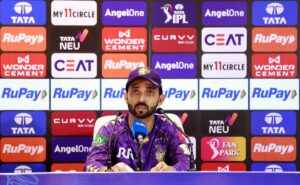
No More India vs Pakistan In Cricket World Cups After Pahalgam Terrorist Attack? Report Claims, "BCCI..."
India Pakistan Cricket Relations Face Uncertainty After Pahalgam Terrorist Attack
Table of Contents
- Impact of Pahalgam Attack on India Pakistan Cricket Relations
- BCCI’s Response to Tragedy and Cricket Scheduling Rumors
- Current Status of India Pakistan Cricket Relations
- India vs Pakistan in ICC Events: Facts and Future
- Bilateral Series: A Decade-Long Hiatus
- Upcoming Tournaments and Scheduling Considerations
- Official Statements from Cricket Authorities
- Future Outlook for India Pakistan Cricket Relations
Impact of Pahalgam Attack on India Pakistan Cricket Relations
The devastating Pahalgam terrorist attack on April 22 that claimed 26 innocent lives has sent shockwaves through the international community, with significant implications for India Pakistan Cricket Relations. The attack, carried out by terrorists linked to a Lashkar-e-Taiba offshoot in the scenic meadows of Baisaran in Kashmir, has once again highlighted the fragile nature of relations between the two neighboring countries. As global condemnation pours in, the sporting world – particularly cricket, which holds immense cultural significance in both nations – has come under intense scrutiny.
India Pakistan Cricket Relations have historically been a barometer for diplomatic ties between the two nations. The Pahalgam incident represents one of the worst confrontations with Pakistan in recent times, inevitably casting a shadow over sporting relations. Cricket, being the most popular sport in both countries, often bears the brunt of geopolitical tensions, with matches between the two cricketing powerhouses transcending sport to become symbolic encounters reflecting broader national sentiments.
India and Pakistan cricket teams during a past ICC tournament encounter. (Representative image)
BCCI’s Response to Tragedy and Cricket Scheduling Rumors
In the wake of the Pahalgam terrorist attack, speculative reports began circulating that the Board of Control for Cricket in India (BCCI) had formally approached the International Cricket Council (ICC) with a request to ensure India and Pakistan are not grouped together in future global tournaments. These reports suggested a potential fundamental shift in India Pakistan Cricket Relations at ICC events, which would have far-reaching implications for world cricket scheduling and economics.
However, according to reliable sources at Cricbuzz, these claims appear to be unfounded. A senior BCCI official clarified that such developments were “news to him,” effectively debunking the speculation. While acknowledging that BCCI authorities remain “sensitive to the prevailing national mood” following the Pahalgam attack, the official emphasized that there is currently no truth to rumors about formal requests to separate the teams in ICC events, maintaining the status quo in India Pakistan Cricket Relations within global tournaments.
Truth Behind the Reports
Despite widespread speculation, the BCCI has not formally requested the ICC to separate India and Pakistan in future World Cup events. A top BCCI official confirmed that such reports are unfounded, though the cricket body remains sensitive to national sentiment following the Pahalgam terrorist attack.
Current Status of India Pakistan Cricket Relations
The current state of India Pakistan Cricket Relations exists in a carefully managed equilibrium. For the past decade, cricketing encounters between the two nations have been limited exclusively to ICC (International Cricket Council) tournaments and continental cricket events like the Asia Cup. The last bilateral series between India and Pakistan took place in 2012-13, marking a significant hiatus in direct sporting engagement between the neighboring countries.
This arrangement reflects the complex geopolitical dynamics at play. While bilateral cricket has been suspended due to diplomatic tensions, India and Pakistan continue to face each other in multilateral tournaments organized by international governing bodies. The BCCI has maintained a consistent stance that bilateral cricket with Pakistan remains suspended in accordance with government policy, a position that has been reinforced following the Pahalgam terrorist attack.
India vs Pakistan in ICC Events: Facts and Future
India Pakistan Cricket Relations in ICC events have historically generated enormous global interest, with matches between the two nations consistently drawing the largest television audiences in world cricket. Tournament organizers typically ensure that India and Pakistan are placed in the same group during preliminary stages to maximize viewership and commercial value. These high-profile encounters have become a cornerstone of modern cricket economics.
Despite the current tensions, BCCI Vice-President Rajeev Shukla has clarified the board’s position regarding India Pakistan Cricket Relations in ICC tournaments. “When it comes to ICC events, we play due to ICC engagement. ICC is also aware of whatever is happening,” Shukla stated, drawing a distinction between bilateral commitments (which remain suspended) and multilateral obligations through ICC tournaments, which India continues to honor.
ICC vs Bilateral Cricket: Key Differences
India Pakistan Cricket Relations follow a two-tier approach: no bilateral series due to government policy, but continued participation in ICC and continental events due to international cricket body commitments. This distinction allows for occasional high-profile matches while maintaining the broader suspension of direct sporting ties.
Bilateral Series: A Decade-Long Hiatus
The extended absence of bilateral cricket series between India and Pakistan represents one of the most significant gaps in the international cricket calendar. Prior to 2012-13, regular series between the two nations were highlights of the global cricket schedule, featuring some of the sport’s most memorable moments. The decade-long suspension of direct cricket engagement has had substantial sporting and economic implications for both cricket boards.
BCCI Vice-President Rajeev Shukla has emphatically stated the organization’s position regarding bilateral India Pakistan Cricket Relations following the Pahalgam attack: “We don’t play with Pakistan in bilateral series because of the government stand. And we will not play with Pakistan in bilaterals going forward.” This unequivocal stance suggests that the resumption of bilateral cricket remains unlikely in the foreseeable future, particularly in light of recent events.
Upcoming Tournaments and Scheduling Considerations
Looking ahead at the cricket calendar, there are several tournaments that will test the parameters of India Pakistan Cricket Relations. While there are no major men’s ICC events scheduled for the remainder of 2024, the Women’s T20 World Cup will be hosted in India in September-October. Pakistan has qualified for this tournament, but in line with existing arrangements, will play its matches at a neutral venue rather than in India.
Additionally, the men’s Asia Cup is on the horizon, with India designated as the host nation. Similar to other recent tournaments involving both countries, this event will also be held at a neutral venue, reflecting the ongoing complexities in India Pakistan Cricket Relations. These arrangements demonstrate how cricket administrators have developed pragmatic solutions to maintain sporting engagement while acknowledging diplomatic realities.
| Tournament | Host | India-Pakistan Arrangement |
|---|---|---|
| Women’s T20 World Cup 2024 | India | Pakistan to play at neutral venues |
| Men’s Asia Cup | India (nominal host) | Entire tournament at neutral venue |
| Future ICC Events | Various | Teams continue to meet in group stages |
Official Statements from Cricket Authorities
In response to the Pahalgam terrorist attack, several cricket officials have issued formal statements expressing solidarity with the victims while clarifying their positions on India Pakistan Cricket Relations moving forward. BCCI Secretary Devajit Saikia offered condolences, stating: “The cricketing community is deeply shocked and anguished by the tragic loss of innocent lives in the gruesome terror attack at Pahalgam yesterday. On behalf of the BCCI, while condemning this ghastly and cowardly act with strongest possible words, I extend our heartfelt condolences to the bereaved families and prayers for the departed souls.”
These statements reflect the cricket community’s acknowledgment of the broader human tragedy while maintaining established positions on sporting relations. The careful wording of these official comments reveals the delicate balance cricket administrators must maintain, respecting national sentiment while fulfilling international sporting obligations that govern India Pakistan Cricket Relations.
Official BCCI Position
“We are with the victims and we condemn it. Whatever our government will say, we will do. We don’t play with Pakistan in bilateral series because of the government stand. And we will not play with Pakistan in bilaterals going forward. But when it comes to ICC events we play due to ICC engagement,” – Rajeev Shukla, BCCI Vice-President.
Future Outlook for India Pakistan Cricket Relations
The Pahalgam terrorist attack has undoubtedly added another complicated layer to the already complex India Pakistan Cricket Relations. While no immediate changes to ICC tournament structures have been confirmed, the incident reinforces the volatile nature of sporting ties between the two nations. Cricket’s governing bodies will continue to navigate these challenges while balancing sporting integrity, commercial interests, and geopolitical sensitivities.
For the foreseeable future, India Pakistan Cricket Relations are likely to maintain their current pattern: no bilateral engagements while continuing limited interactions in multinational tournaments. This compromise allows for the occasional high-profile match that captivates global cricket audiences while respecting the broader diplomatic context. As both nations process the aftermath of the Pahalgam attack, cricket – like other aspects of the relationship – will remain subject to the broader diplomatic climate between India and Pakistan.






